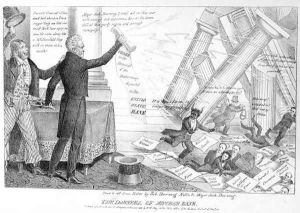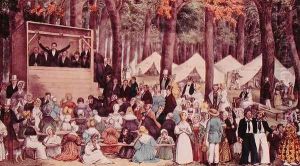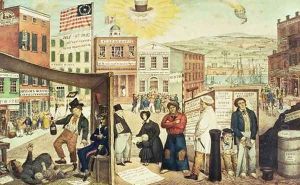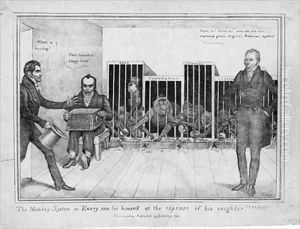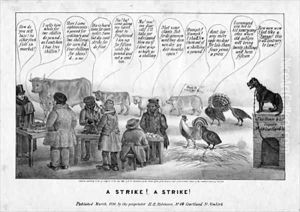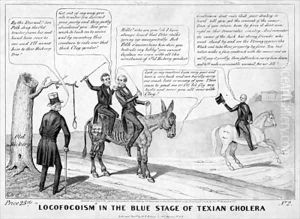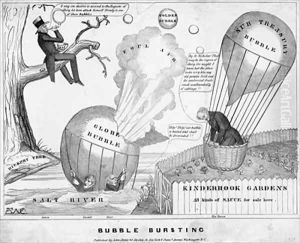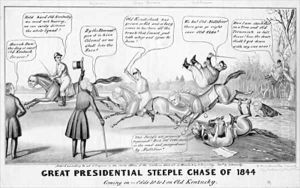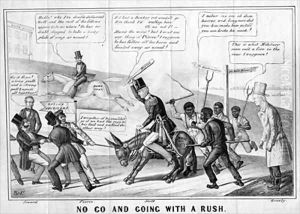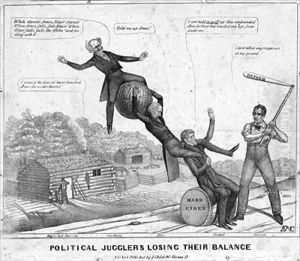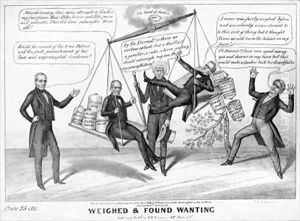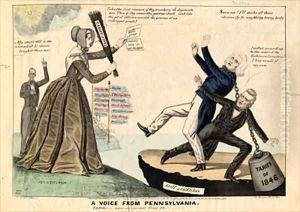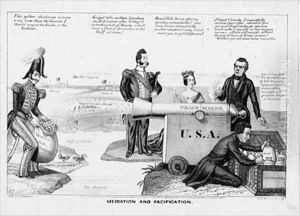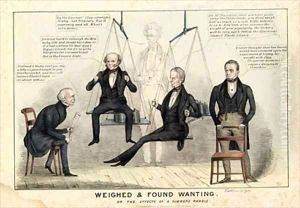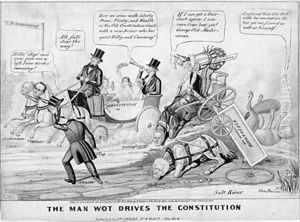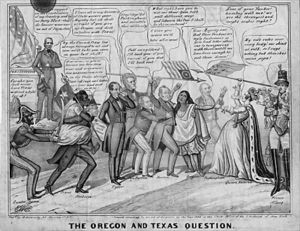Edward Williams Clay Paintings
Edward Williams Clay was an American artist and caricaturist born in 1799 in Philadelphia, Pennsylvania. He is best known for his politically charged and socially satirical lithographs and cartoons. Early in his career, Clay trained as a lawyer but quickly turned his attention to art, a field where he demonstrated significant talent and passion.
Clay's work gained prominence in the 1820s and 1830s, a period marked by intense political and social changes in the United States. He became well-known for his series 'Life in Philadelphia,' which humorously depicted the manners and social customs of the city's residents. This series was celebrated for its keen observations and became widely popular, establishing Clay as a leading figure in American caricature.
However, Clay's work often courted controversy, especially his later series that depicted African Americans in stereotypical and derogatory ways. These works reflected the racial prejudices of the time and have since been criticized for their racist undertones. Despite this, Clay's contributions to the development of American cartoon and caricature are undeniable. His ability to capture and critique the social mores of his time left a lasting impact on the art form.
Throughout his career, Clay also engaged in political satire, targeting various political figures and movements. His lithographs served as a form of commentary on the political landscape of the United States, contributing to the public discourse through his sharp wit and artistic skill.
Edward Williams Clay passed away in 1857, leaving behind a complex legacy. While his work is celebrated for its artistry and wit, it also serves as a historical document, reflecting the prejudices and political tensions of 19th-century America. Despite the problematic aspects of some of his caricatures, Clay's influence on American satirical art is significant, paving the way for future generations of artists and cartoonists.
